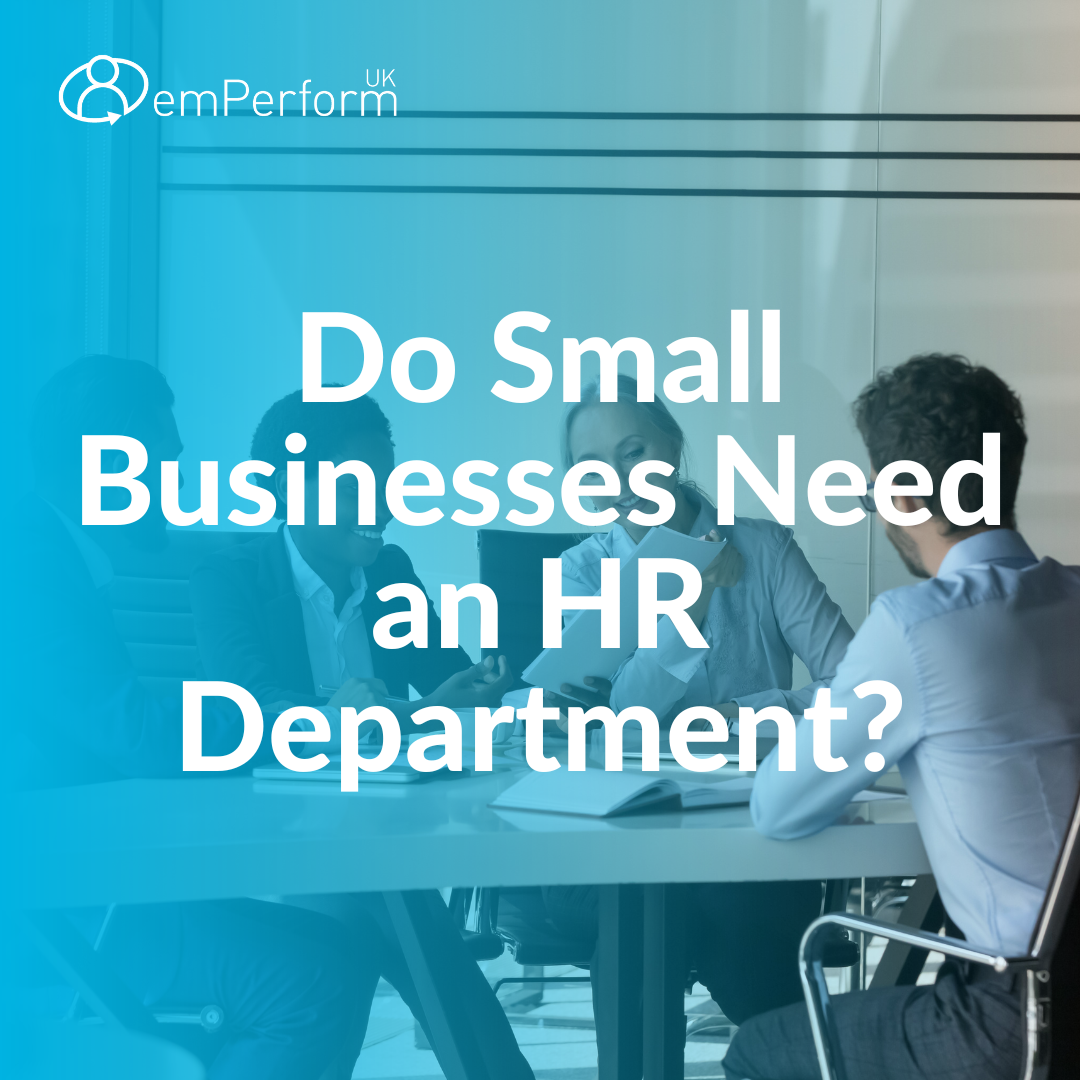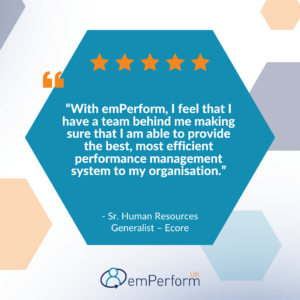
Running a small business involves numerous administrative tasks and responsibilities essential for keeping OKRs on track for a successful year. As a business leader, many of these duties fall on your shoulders. One critical aspect that can often be overlooked is establishing and maintaining a well-structured HR department.
In fact, some small business owners choose not to have any form of human resource management other than outsourced transactional HR duties, e.g. payroll and benefits because the perceived value does not match the investment. Consider this: what if improving your HR Toolkit could be the catalyst to your business’s success?
In this guide, we’ll explore the key responsibilities and benefits of having an in-house HR department in a small business. We’ll also discuss why investing in HR software tailored to your specific needs is both a smart move and a necessity, as the right solution can enhance efficiency, ensure compliance, and drive overall success.
What is HR?
At its core, Human Resources (HR) is all about managing and supporting the wellbeing of employees whilst helping employers build strong, positive relationships with their staff. The focus on the “human” element is a key reminder of its purpose: to prioritise people. Whether it’s an individual HR Manager, an in-house team, or an outsourced business partner, HR is responsible for overseeing the needs, development, and satisfaction of the most valuable asset in any organisation – its employees.
What is the Role of Human Resources?
Ever wondered, “What does HR actually do?” You’re not alone. HR is often associated with handling difficult situations like disciplinary actions or workplace conflicts, but its role extends far beyond just managing problems.
While HR responsibilities can differ depending on the business, the core functions typically include:
- Recruitment and hiring: Finding and attracting the right talent to support company growth.
- Onboarding new hires: Ensuring smooth integration for new employees and setting them up for success.
- Performance management: Setting clear expectations, conducting performance reviews, and helping employees meet their goals.
- Compliance with labour laws: Making sure the company adheres to relevant employment laws, health and safety regulations, and industry standards.
- Cultivating a positive workplace culture: Creating an environment where employees feel supported and engaged.
- DEIB initiatives: Promoting an inclusive work environment where all employees feel respected and valued.
- Managing compensation and benefits: Implementing fair and competitive pay structures, along with benefits that support employee wellbeing.
- Handling disciplinaries and contract terminations: Addressing any necessary performance or behaviour issues with fairness and consistency.
- Staff training and professional development: Providing opportunities for skill-building and career growth while considering succession planning.
- Workforce planning and organisational development: Assessing company needs and aligning staffing and organisational structures for future growth.
HR is central to shaping a healthy, productive, and compliant workplace, ensuring employees receive the support they need and that the organisation runs smoothly.
Is an HR Department a Legal Requirement for Small Companies?
In short, no. Having an HR department is not a legal requirement for small businesses. As explained by the recruitment experts at Michael Page, “In the UK, there is no legal obligation for businesses of any size to have an internal HR department or to outsource HR functions to a third party.” However, while it may not be legally required, establishing an HR department, whether in-house or outsourced, as a resource to everyone in the company.
Do Small Businesses Need an HR department?
Even though having an HR department isn’t legally required, it’s still worth asking: is investing in HR support beneficial? While small businesses may not need a full-scale HR team, some form of HR structure is strongly recommended. It can provide immense value not only to your business operations but also to employee wellbeing and engagement. Let’s explore why HR support is a key ingredient for success, especially as your company grows.
The Benefits of Human Resources for Small Companies?
Investing in effective human resource management can benefit your business by…
Increasing a Sense of Belonging with Consistent Feedback
The business-oriented experts at Forbes assert that “small-business owners need to lean into one of the biggest advantages they can offer their employees: treating them as valued individuals.” Here at emPerform, we couldn’t agree more!
As leaders of small and medium-sized enterprises (SMEs), finding time for one-on-one conversations with every team member can be a challenge. This is where HR support plays a pivotal role. HR makes ongoing feedback, performance reviews, and upward feedback more streamlined and accessible, making it easier to cultivate a sense of employee belonging. When employees feel accepted and valued within the team, their engagement rises, their contributions deepen, and they form stronger connections; all of which directly drive the success of the business.
Your employees’ opinions are also a vital part to growth in an organisation. Tools like new starter surveys, 360° reviews, and anonymous surveys offer valuable insights into the inner workings of your organisation. With dedicated HR performance management software, you ensure no employee’s voice goes unheard, promoting a more connected and motivated workforce that will fuel business growth as your company expands.
Improving Employee Engagement with Regular Performance Reviews
How engaged are your employees? A recent report by McKinsey revealed that “workers who have a positive employee experience have 16 times the engagement level of employees with a negative experience.”
A key responsibility of human resources is ensuring that every employee receives regular performance reviews, where they can check in on professional development, identify areas for improvement and set SMART Goals to reach their next milestone. Aside from keeping your admin in order, all of these tactics help to improve employee engagement and are metrics that highlight opportunities for celebrating success through employee recognition.
Ensuring Pay Rises and Promotions are Given Fairly with Compensation Management
Need a helping hand ensuring that rewards (i.e. pay rises, promotions and bonuses) are handed out fairly and consistently throughout your organisation? You may need to lean on an HR department.
If you dislike dealing with spreadsheets and complex processes, investing in an HR tool that consolidates salary decisions into a single report—easily imported into your payroll system—is an ideal solution. At emPerform, our Compensation Manager provides a structured and consistent approach, helping companies link pay raises, promotions, and bonus decisions to performance.
What’s more, it enables you to quickly implement a pay-for-performance culture, where success is directly tied to rewards. The idea is that by linking salaries to performance, employees will be motivated to work even harder. Don’t just take our word for it—according to the CIPD, “financial incentives can improve employee motivation and performance.”
Making Smart Business Decisions With People-First Data
In addition to supporting your employees (which is of course the top priority), did you know that human resources can actually help to guide small business leaders through tough business decision making?
The HR Magazine highlights the rich potential of data-driven decision-making: “Most HR departments now have access to comprehensive data that can track the collective ‘health’ of a company’s workforce, from company-level skills matrices and demographic overviews to employee-specific engagement and productivity.”
All of this is at your fingertips, yet many leaders fail to take advantage of this fantastic employee-first data. With emPerform, you can easily track the status of performance efforts and ensure that you have the right mix of skills and competency where you need them most. To get ahead of the competition, it’s time for small businesses to integrate these invaluable data points into decision-making processes.
Investing in HR Software for Small Businesses
Whilst you may not feel the need to hire a whole HR team, investing in flexible performance management software is a fantastic alternative to guarantee your employees are getting the best support possible.
Here at emPerform, we know that maximising the ROI of your software investment is incredibly important, particularly for small business leaders. That’s why we provide HR solutions designed to simplify and streamline your entire performance management cycle.
We collaborate closely with you to roll out your optimal performance management strategy and tailor it to your unique business needs over time. So whether you’re looking to eliminate manual forms and processes, set SMART goals and development plans, implement easy, online performance reviews and compensation management, or all of the above (and more!), we have the HR tool for you. Plus, you can even integrate data from your existing HR system – because we know how to make life easier. What are human resources for, if not simplifying your work processes?
To explore emPerform’s software features in more detail, head to our product features page for an in-depth breakdown.

For small businesses to stay ahead of the curve, it’s time to invest in a high-performing HR department or performance management software that prioritises the wellbeing and development of your workforce.
After all, an excellent leader recognises that their most valuable company asset is not their financial resources or slick operations process; it’s their employees. Ultimately, without the right people, (and robust HR software to manage them), your organisation is less likely to succeed.
For complete employee performance management software at your fingertips, consider adding emPerform to your HR Toolkit. From conducting online performance reviews to setting tailored goals and tracking year-round development, there’s a whole host of benefits that can aid both employees and employers alike.
Book a FREE demo today or contact us for any advice on performance management.




Recent Posts